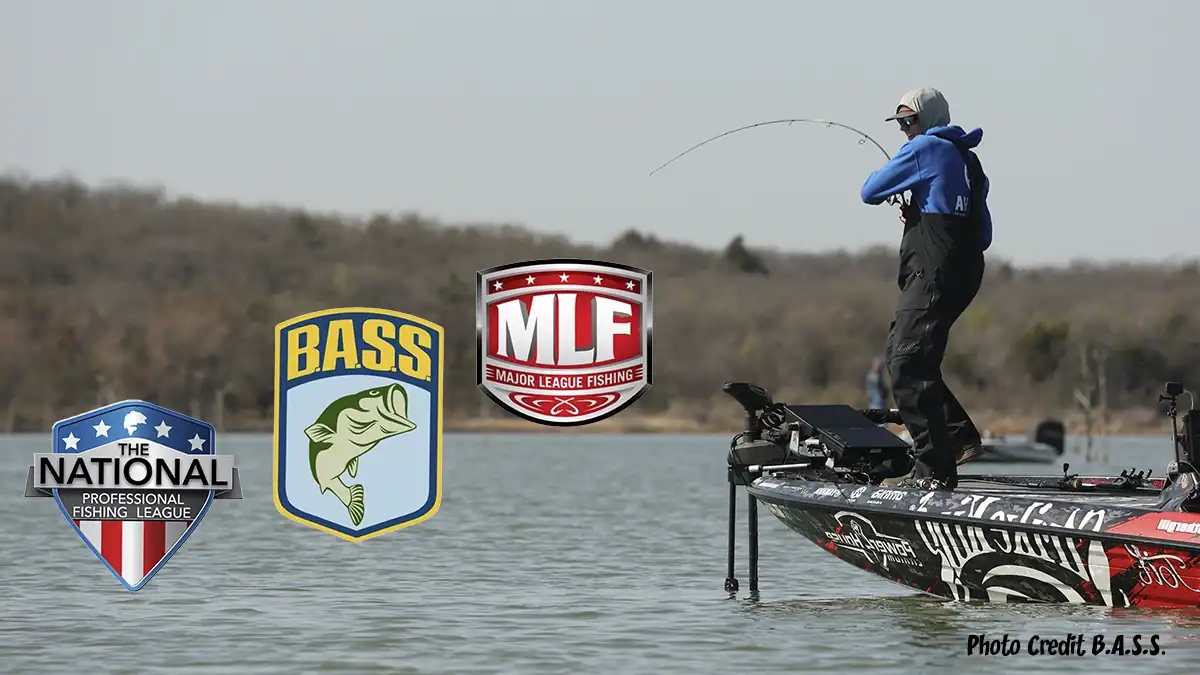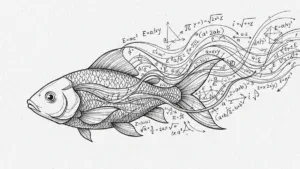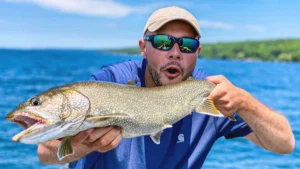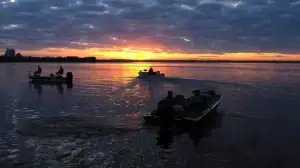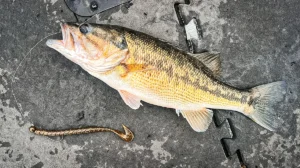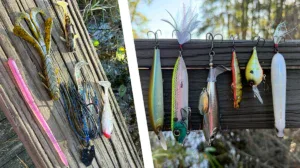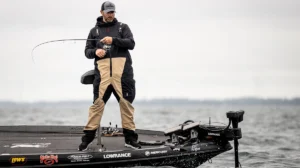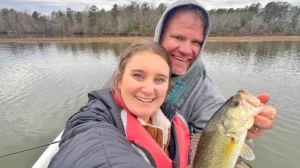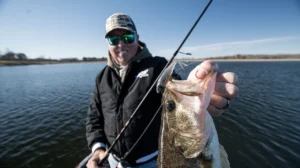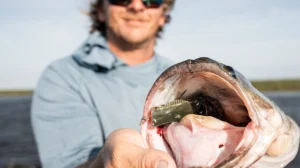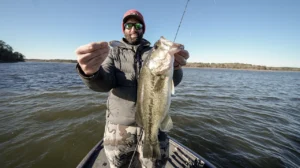If you’ve been following along, we’ve seen a forward-facing sonar (FFS) shuffle in the pro ranks over the last 12 months. Last September, Major League Fishing (MLF) decided to limit the use of FFS to one of three periods. The National Professional Fishing League (NPFL) banned forward-facing sonar (often called live imaging) completely.
B.A.S.S. (Bass Anglers Sportsman Society) jumped into the mix last fall when they decided to limit their Elite anglers to one live-sonar transducer at the bow, and no more than 55 inches of screens throughout the boat. B.A.S.S. has since implemented further restrictions for the 2026 season, choosing to ban FFS in certain tournaments and allow it in others in both of its Elite and Opens series.
The Trickle-Down Effect
The question we want to get at is, “How will this affect the regular weekend tournament angler?” We’ve seen time after time throughout the history of competitive bass fishing that decisions made by the top tournament organizations—especially B.A.S.S.—affect local tournament trails, as well as how weekend local tournaments are run.
As a kid, I would fish tournaments on Lake Martin. The entry forms had a couple key rules on them and then just a blanket statement for the remainder of the guidelines to follow B.A.S.S. rules. These tournaments had zero affiliation with B.A.S.S. The tournament director simply chose to follow B.A.S.S. official rules.
Such cannot be the case anymore, as B.A.S.S. has a wide range of tournament trails with varying rules at different events. But the point remains — the decisions made by top-level tournament organizations for top trails trickle down to the lower levels. You likely noticed the new FFS rule for the Elites has already rolled over to the Opens.
Another example: The no-net rule originating on the Elite Series has made its way to B.A.S.S. base level events in the B.A.S.S. Nation Series. Part of why these rules trickle down is because anglers at these levels can qualify for the Bassmaster Classic, and B.A.S.S. naturally wants all the anglers to qualify under a mostly uniform set of guidelines.
There’s also a path to the Classic through the Bassmaster Team Championship, whose field is composed of different associated local trails from across the country. This begs the question: “How will the qualification of these teams be affected by recent FFS-rule changes?”
How I Think it Will Go
I don’t think B.A.S.S. or any other tournament organization will try to reach out beyond their proprietary trails to mandate any changes, but instead rely on their influence to steer the ship over time.
Some local leagues will voluntarily adopt new rules for FFS, especially those that have been on the fence about it. If they see the big brands’ decisions as an invitation and encouragement to change course, then it will probably happen.
You’ll see some small clubs do the same, likely banning the tech outright. These clubs are small enough — and exclusive enough — to implement and enforce changes like these. Some have already adopted the catch-weigh-release scoring style of MLF, for example.
For the majority of local tournaments, I don’t think we’ll see a rule change unless FFS becomes extremely dominant. What I’m talking about is not just the winner using FFS, but for the upper 25 percent of the field. I believe this because local tournaments are typically one-day events.
One-day tournaments on many fisheries can often still be won without FFS. Someone might fish a four-day event on a clear fishery and peck out 14 pounds of spotted bass a day using FFS to outpace the field. But, on any given day, someone is likely to bust a 17-pound bag of largemouth on that same fishery.
And there are times when FFS isn’t as imperative, like during the spawn or when bass are buried up in matted vegetation. It’s certainly not the case on every fishery; there are lakes like Guntersville and Erie where you’ll have an extremely hard time beating it. But, one day of competition definitely levels the playing field a bit when it comes to FFS.
What’s Next
I think we’ll see a slow progression of restrictions on live sonar across the country at the local level. FFS has been compared to the Alabama Rig ad nauseam for good reason. These two inventions have impacted the effectiveness of an angler catching bass more than anything else in decades, if not ever.
As was the case with the umbrella rig, I believe we’ll see pockets of tournaments and tournament trails ban it, and others double-down on accepting it. This will give the local angler plenty of options. I think, for that reason, the sport will be better off as a whole.
If you want to use FFS, there will be tournaments available to you that allow it. If you hate it, there will be tournaments available to you that ban it. We can see this has already happened at the top, with MLF, B.A.S.S., and NPFL. The same is already the case in some places locally, and there will be plenty of variety moving forward.
